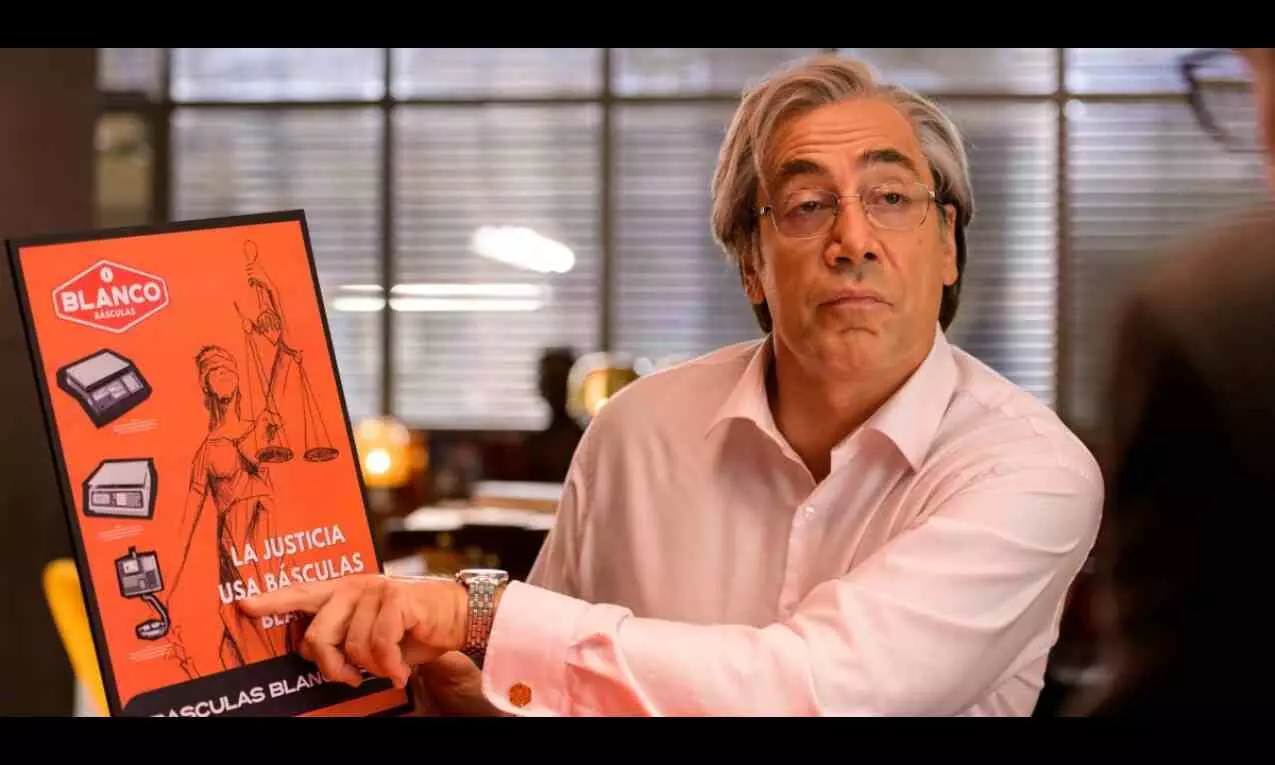‘The Good Boss’ tightens the noose

The Good Boss (FILM)
Language: Spanish
Director: Fernando Leon de Aranoa
Year of making: 2021
Direction: 3.5 star (out of 5)
Cinematography: 3.5 star (out of 5)
Sound: 3.5 star (out of 5)
Mise-en-scene: 3.5 star (out of 5)
Editing: 3.5 star (out of 5)
Acting: 4 star (out of 5)
‘The Good Boss’ picks up the horrendous business case of Basculus Blanco, one of the leading Spanish farms that make industrial scales. Unlike Fernando Leon de Aranoa’s early film ‘Mondays in the Sun’ which dealt with unemployment from a deeper perspective, this dramedy dismantles the illusion of camaraderie between employer and employee. The boss, Julio Blanco, is highly ambitious, manipulative, avuncular and a habitual sexual predator too. The silver tongue tycoon neither dithers to bail out one worker’s delinquent son to use him for some inappropriate purpose nor thinks twice to sleep with young interns to torpedo their careers. His solipsism is unbearable when he invades his best friend turned employee’s private life to run the industry smoothly. Who else can be more focused than Javier Bardem in such a devilish role that sends a chill down your spine when he gradually uncoils his sociopathic attitude in front of his employees? No wonder, for this spectacular role in the film, Javier Bardem won the Goya Award in 2022.
The French anarchist Pierre-Joseph Proudhon once remarked in his book that ‘property is theft’. The connotation of ‘theft’ has not changed much since then. Rather, it is practised ruthlessly in the 21st-century corporate arena. Companies make a huge profit by robbing employees’ freedom and squeezing their outputs at the workplace. As the idea of Proudhon’s ‘mutualism’ crumbles under crony capitalism, the corporate honchos tend to put a bright face on old scaffoldings in the name of hard work, loyalty and work-life balance.
Scriptwriter and director, Araona’s metaphor about balance and justice begin with Blanco removing one of his employees Jose in his 50s in the film. Jose makes a furore by setting up a temporary camp with his kids, just outside the entrance of the office in protest against his ouster. It happens just before a scheduled visit of a team of inspectors to the industry to decide on the award of excellence in manufacturing. Stubborn Jose turns down all offers given by the company. Eventually, the young intern, Liliana tips the scale further down against her boss. For Blanco, though the week appears to go out of kilter, he ostentatiously regains control by making a subtle truce with his errant employees. In the process, he victimises and fires his old friend Miralles. Yet, Julio’s stoic wife Adela maintains silence at home.
Adding a mellifluous piece from Sergei Prokofiev’s ‘Romeo and Juliet’ to the film’s bouncy background track, Zeltia Montes lets the tension rise like a ticking bomb. Zeltia bags another Goya Award for his musical work in the film. Celso Bugallo as factory worker Fortuna fits well in his small appearance. Oscar de la Fuente delivers a power-packed punch as the deprived worker Jose and Manolo Solo as Miralles. Almudena Amor’s Liliana beautifully embeds every art of winning men and money within her character.
Araona’s ‘The Good Boss’ mockingly strikes hard at the world of business where anyone can be as desirable as disposable depending on what the moment requires.



